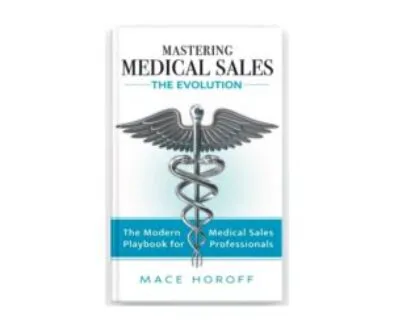The Redundant Mistake To Fix Now For Explosive Medical Sales
Medical sales is difficult enough without the redundant mistakes that work against the sale. What am I talking about?
Imagine this: you’re a medical sales representative, strolling confidently through the O.R. or hospital corridor, gleaming with ambition. When you catch sight of a doctor at the scrub sink or in the hallway, you get excited and feel the need to act. It’s sales time! You’re going for it.
But hold on a second! Before you eagerly approach the doctor with your “I have something to show you” line, let’s take a step back and consider why this approach is really a rookie sales mistake. After all, as a medical rep, you should aspire to be of a higher quality than your stereotypical used car salesman with slicked-back hair and a cheesy grin. Remember, you’re not here to sell a lemon but to provide value contributing to patient outcomes.
What You Say vs. What The Prospect Hears
When you utter those fateful words, “I have something to show you,” what the doctor actually hears is, “I want to sell you something.” Pretend for a moment that you’re the doctor when a salesperson approaches you. How do you feel having your day interrupted by an uninvited sales pitch? You probably just want the intruder to go away, right? Well, guess what? The doctor feels the same way. They’re not likely to be in a buying mood, especially when preparing for surgery or making rounds in the hospital.
So, what’s the alternative? It’s simple, really. Make it quick and make it about them, not about you. Your product doesn’t exist in a vacuum; it solves a problem or delivers a result. Understand the problem your product addresses, the desired outcome, and how the prospect views it. This is what you’re selling—the solution, not just a product. Make the conversation about the issues your product addresses instead of a product every competitor offers.
Get The Prospect’s Attention By Making Them Curious
Don’t worry; you’ll get to discuss your product when the time is right. But you must first get the prospect’s attention and infect them with curiosity. The way to do this is to talk about something they care about.
For example, imagine you have a product that helps patients leave the hospital a day sooner after surgery while reducing readmissions by a staggering 90%. Now, instead of barging in with the tired “Hey doc, I want to show you something” line, focus on the issue at hand. Say something like, “Doctor, who can I contact in your office to schedule 10 minutes with you? When you have time, I’d like to get your thoughts about how your surgeon colleagues are growing referrals by discharging patients a day earlier and reducing readmissions by 90%.”
Is there any surgeon who wants to keep patients in the hospital longer than necessary and who doesn’t mind having their surgical stats and reputation tarnished by unnecessary readmissions?
You be the surgeon. Which approach are you more likely to respond to?
In the first scenario, someone signals that a sales pitch is coming. In the second, someone offers to show how other surgeons are improving their stats and outcomes, bringing in more referrals. Which approach are you more willing to bet your sales quota on?
There are two common responses during the second scenario. One is where the surgeon will say,” I only have a minute, so be quick” because they’re curious. Or they might say, “I’d like to hear about that. Call my scheduler and ask her to book ten minutes with you on Friday.”
Respect Your Time Limitations
If the doctor asks you to tell them about it at that moment, be strategic. If you need ten minutes for an effective sales conversation and the doctor is already rushed, the scrub sink isn’t the best place. Provide a glimpse of the benefits and outcomes, but don’t get suckered into providing details when you won’t have enough time. Instead, push for an appointment where you can discuss the issue so the product’s true value and differentiation can be appreciated.
Now, this is just one example of how to replace the tired “I want to show you something” sales approach. As a sales professional, you should have an assortment of tactics to deploy when you encounter prospects. If you’re feeling unsure, don’t fret. You can always learn. Ask your sales manager for a real-world training workshop, or seek out training opportunities on your own.
The worst thing you can do in medical sales is to keep using ineffective sales techniques that aren’t generating business. Leave weak sales approaches such as “I want to show you something” to the rookie sales reps. That’s not you. You’re a medical sales professional.
________________________________________________________________
Grab my FREE Medical Sales Training Course: “Distinction To Dollars: Winning The Competitive Battle In Medical Sales.”



